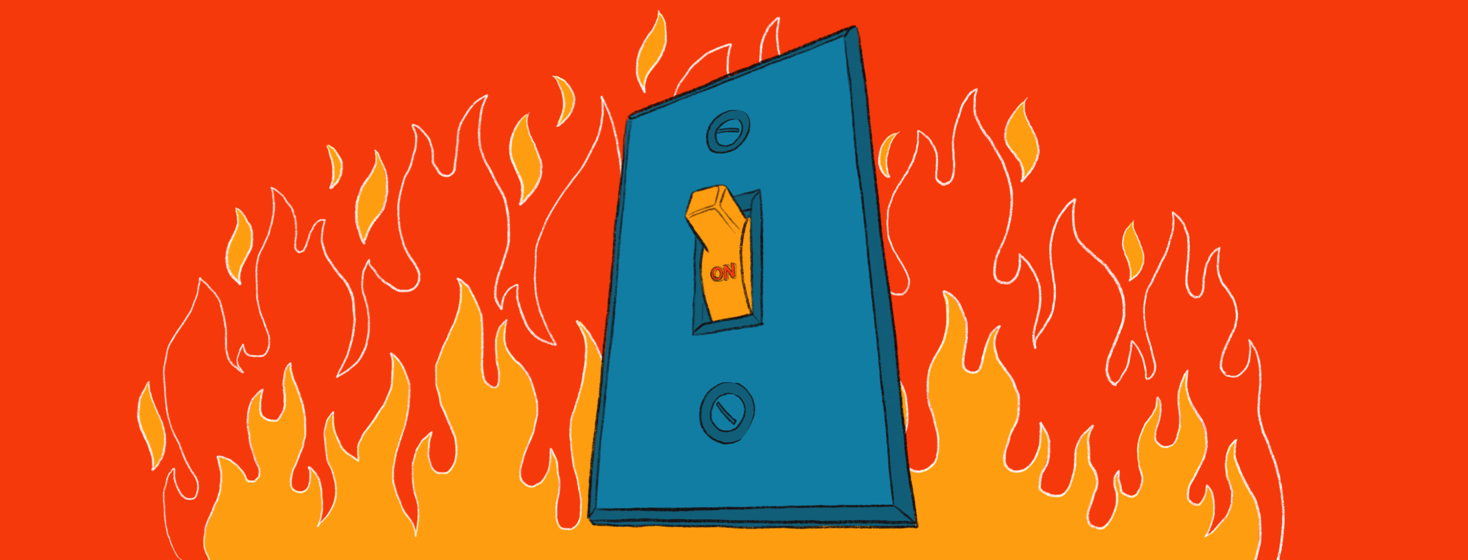Dealing With Hot Flashes
Hot flashes are sudden feelings of warmth, sweating, and redness. They are common for women undergoing menopause. Men with prostate cancer undergoing hormone therapy also experience hot flashes.1
Hot flashes can have a major impact on your quality of life. Talk to your doctor about lifestyle changes and medical treatments that may help you reduce or deal with hot flashes. Ask them about the benefits and risks of different options.
What are hot flashes?
Hot flashes are intense sensations of heat. They usually come with excessive sweating and redness. Some people have anxiety or heart palpitations (a fast or irregular heartbeat) during hot flashes. If you have hot flashes, you are most likely to feel them in your:1,2
- Face
- Neck
- Chest
Hot flashes range in frequency and severity. They are common at night. They can be quick or last as long as 20 minutes. Hot flashes during sleep are called “night sweats.”1
Why does hormone therapy cause them?
Androgen deprivation therapy (ADT) is a hormone therapy that can treat prostate cancer. ADT may be used as a short-term treatment to improve radiation. ADT can also be used as a long-term treatment. It works by lowering testosterone levels. This helps stop your prostate cancer from growing.3
About 4 out of every 5 men with prostate cancer who undergo ADT experience hot flashes. Hot flashes usually last throughout the ADT treatment. But they may continue after stopping treatment. About half of men continue having hot flashes 5 years after treatment. Surgical removal of testicles and prescription steroid drugs can also cause hot flashes.3,4
Low testosterone seems to be the cause of hot flashes. We do not yet know why this happens. It may be that low testosterone levels disrupt the brain’s thermal control center. This disruption can cause the nervous system to send signals that lead to flushing and warmth. Your body then tries to cool your skin by sweating.2
How are hot flashes treated?
Hot flashes can have a major impact on your daily life, especially how you sleep. Several drugs may treat hot flashes. These include:3,4
- Estrogens, such as estradiol
- Progestins, such as Provera® (medroxyprogesterone), Androcur® (cyproterone acetate), or Megace® (megestrol acetate)
- Antidepressants, such as Effexor® (venlafaxine) or Paxil® (paroxetine)
- Anticonvulsants, such as Neurontin® (gabapentin)
- Antihypertensives, such as Catapres® (clonidine)
The most effective drugs to treat hot flashes seem to be progestins and antidepressants. But the right treatment depends on a number of personal factors.4
These drugs can have serious side effects. For example, many can cause nausea, fatigue, dry mouth, and mood changes. Ask your doctor what to expect when taking these medicines. Tell them your full health history before taking any of them.1,4
What are other ways to manage hot flashes?
Lifestyle or behavioral changes can help manage hot flashes. You can use these techniques alone or with medicines. In general, treatments that reduce stress and increase comfort may provide relief. These include:2,4
- Cognitive behavioral therapy
- Relaxation and breathing exercises
- Hypnosis
- Wearing layers of light clothing
- Keeping your room cool
- Wearing natural fibers
- Using cooling pads or pillows
- Sipping cold or iced drinks
- Taking lukewarm showers or baths
- Reducing your intake of alcohol, caffeine, and spicy foods
Multiple studies have shown the benefits of using acupuncture to treat hot flashes. Some studies have shown small benefits of certain dietary supplements, including vitamin E. We do not know much about how these might work. Talk to your doctor before trying supplements or acupuncture.1,4

Join the conversation